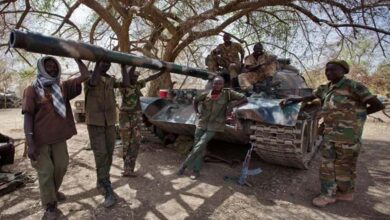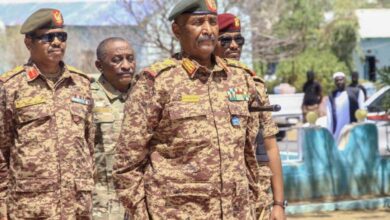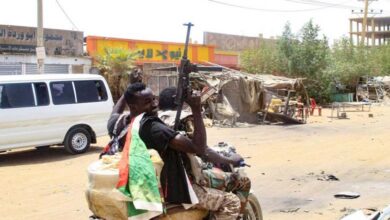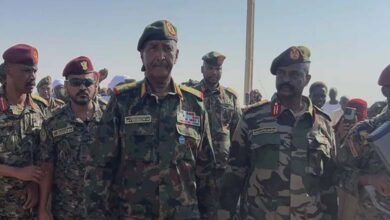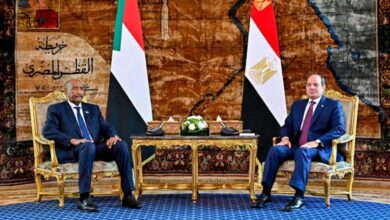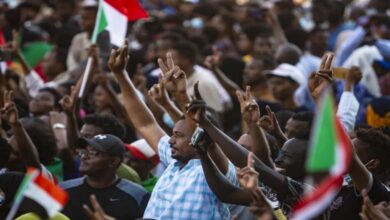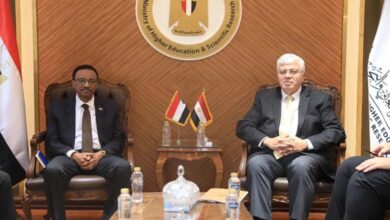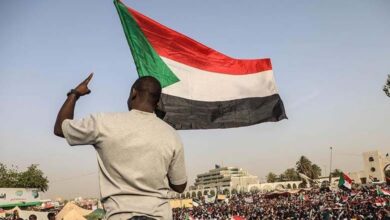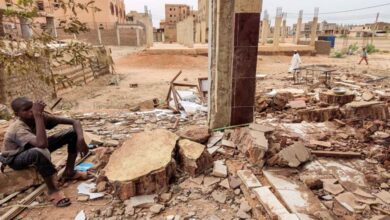Extension of Yemen Truce: Houthi Intransigence in Face of Government Flexibility

Saudi Arabia’s announcement that it is seeking to extend the truce “is still in place” set broad hopes for a halt to the Yemen war, despite the intransigence of Houthi militias.
Saudi Foreign Minister Prince Faisal bin Farhan Al Saud said in an interview with Al-Arabiya television on Tuesday evening that “efforts to extend the truce in Yemen are still ongoing, and the Yemeni government has shown great flexibility with a high responsibility towards the interest of Yemen”.
Observers considered the statements of Prince Faisal bin Farhan Al Saud a new Saudi emphasis on supporting peace in Yemen and the approach of keeping open doors, despite the intransigence and arrogance of Houthi militias and their threat to oil and shipping companies.
The Saudi foreign minister’s comments about the truce in Yemen offered grounds for optimism that it could be extended, and for an end to the looming military escalation.
Following the end of the UN truce on October 2nd, the Yemeni government announced its readiness to extend the truce and to respond positively to the proposals of the UN envoy to Yemen, Hans Grundberg, regarding the extension of the truce and its provisions.
Common ground
The Houthi militias are using the truce for political gains that strengthen their powers and legitimize their coup by introducing new requirements, wrapped in humanitarian slogans, to continue blackmailing the UN with the humanitarian issue.
While the Yemeni government has shown considerable flexibility in its handling of UN and international moves to extend the truce, Houthi militias have set impossible conditions that include recognizing their coup and control over northern areas as legitimate authority.
Not only have the militias placed obstacles to extending the truce, they have gone too far to issue threats against international shipping routes and oil interests in Yemen.
Mohammed Anam, a leader in the Political Bureau for National Resistance, said that all domestic and foreign parties, including the United Nations, are moving to consolidate the truce, to form a common ground that would allow the building of a political and peaceful settlement to end the war and the suffering of Yemenis.
He pointed out that the statements of the Saudi Foreign Minister gave optimism about the possibility of extending the truce, while the Houthi militias alone seek to legitimize their coup by setting arbitrary conditions or continuing the war and destruction and keeping millions in the cycle of suffering and the biggest humanitarian crisis in the world.
Anam said that the Presidential Command Council and the government are handling the truce file responsibly, and have announced positive positions. However, the militias are taking advantage of the Presidential Council’s concern for peace and extending the truce to lift the ceiling of their illegitimate demands in order to agree to the extension of the truce.
New Government Confirmation
The Saudi Foreign Minister, confirmed by the Yemeni Foreign Minister, Ahmed Awad Bin Mubarak, said that the position of the Houthi militias towards the extension of the truce is negative, as they deliberately obstruct the path of a peaceful settlement.
This came during a discussion between Mubarak and Swiss Middle East envoy Wolfgang Amides on Tuesday via videoconference on developments in Yemen.
“The Houthi militias seek to restore Yemen to a state of war and expand its scope to include a threat to navigation in the Red Sea and international oil interests in Yemen and the region”, the Yemeni foreign minister said.
“The Yemeni government has made major concessions in a bid to achieve the aspirations of Yemenis for peace and alleviate the human suffering caused by the Houthi aggression against the Yemeni people”, the official said.
“The flexibility with which the Yemeni government has dealt has been met with intransigence and arrogance by Houthi militias, which have no justification other than giving priority to Iran’s expansionist project in the region at the expense of the interests, security and stability of Yemenis”, he said.
On Tuesday, President of the Presidential Command Council Dr. Rashad Al-Alimi discussed with Enrique Mora, Assistant Secretary-General of the European Union, and Karl Halegard, Deputy Director of the Middle East and North Africa Department, the latest developments in the Yemeni situation, the ongoing efforts to renew the humanitarian truce, and the establishment of peace and stability in Yemen.
President Al-Alimi called for European pressure to push Houthi militias supported by the Iranian regime to deal positively with peace efforts and extend the truce.



